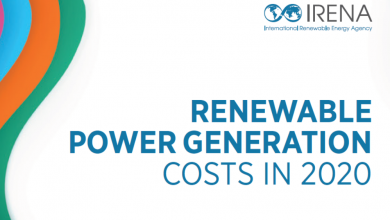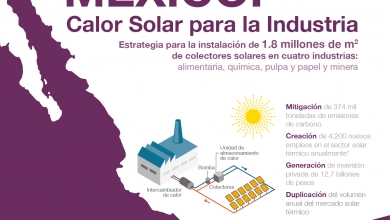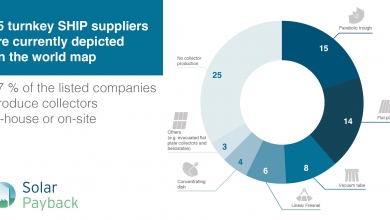Successful financial workshop for SHIP in Mexico

How to assess the profitability of a SHIP plant? To answer this question a two-days training was successfully carried out in Mexico City last April. Three trainers engaged by the German Agency RENAC, Carl Bohny (financial expert), Martin Schnauss (technical expert) and Angelica Quiñones (vice president of ANES), instructed representatives from development banks and solar thermal industry in feasibility studies and performance analysis of SHIP systems. The workshop was jointly organised by the Solar Payback local partners: the Mexican-German Chamber of Commerce (CAMEXA) and the national solar thermal industry association ANES. There were about 30 representatives from institutions such as NAFIN, Conuee, Santander, Everis Mexico, GIZ Mexico, Banobras, KfW Mexico, Bippidsa,among others.
„The workshop´s participants had diverse backgrounds in banking, financial services and engineering. This gave ground for a fruitful exchange between the different parties,“ summarizes Kathrin Greilmeier, Coordinator of the financial training in Mexico. Simultaneous translation between English and Spanish was available. Previous to the face-to-face training in Mexico City an online training course was offered by RENAC as well, with a general introduction to solar thermal and particularly solar process heat technologies and applications. The participants appreciated this familiarization phase.
During the face-to-face training the first day was reserved for a Q & A session on the online course on SHIP technologies and applications followed by a block on the political and market frame conditions for SHIP in Mexico. Then business and financing models of SHIP projects were explained with a special focus on heat supply contracts. “The workshop gave a broad overview of the potential of the SHIP technology, as well as the political context in Mexico”mentions Angélica Quiñones, Vice president of ANES
The second day focused on the calculation of feasibility studies with an Excel tool that is currently developed by Solar Payback partners and that should be available online in June this year. Case studies of potential SHIP plants were calculated and the resulting key performance indicators (KPIs) where introduced and analysed. These were Equity IRR, Project IRR, LCOH, NPV, Discounted Payback and Simple Payback.“The participants obtained very valuable knowledge about the existing tools to finance SHIP projects, and gave very positive feedback about the ´workshop”, mentions Kira Potowski, Project Manager y Consultant in Renewable Energy and Energy Efficiency at CAMEXA.



